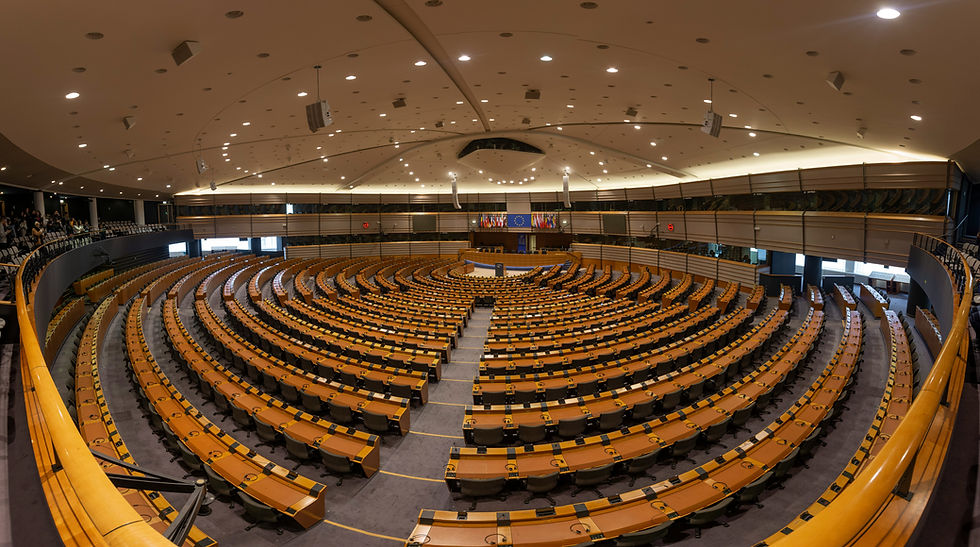Balancing safety with innovation: regulating emerging technologies
- Mako Muzenda

- 27. März 2024
- 2 Min. Lesezeit


The European Union's AI Act is the world’s first major framework for regulating artificial intelligence (AI). Approved by the European Parliament on 13 March 2024, the Act aims to prevent AI systems from discriminating against individuals and infringing on fundamental rights and classifies AI applications into three categories according to their risk level. The AI Act is just one example of how policymakers are trying to navigate the complicated relationship between regulation and legislation with the constantly evolving world of technology. Technological innovations hold immense potential to improve lives. However, with this potential comes concerns about safety and a responsibility to ensure their ethical development. The question then becomes how to balance promoting innovation with maintaining fair practices and usage.
The Tightrope Walk: Fostering Innovation vs. Mitigating Risks
For experts working in fields such as artificial intelligence, there are concerns that national and regional regulations can stifle innovation. Stringent rules can create hurdles for startups and slow down the development process. There is also the ‘pacing problem’, that advancements in these technologies will outpace regulatory frameworks, rendering them ineffective.
However, a lack of regulation can lead to significant consequences for users, policymakers and innovators. When it comes to AI, algorithmic bias, unequal access and its use for fraud and blackmail are just some of the potential risks. There is also the environmental impact of these technologies. For example, mining cryptocurrencies such as Bitcoin consumes vast amounts of energy, raising questions about the sustainability of cryptocurrency. Without proper safeguards in place, the use of technologies could exacerbate existing inequalities and pose a threat to public health and safety.
Striking the right balance is essential to successful regulation. Here are some key considerations:
Adaptability: Regulations need to be flexible enough to adapt to the ever-changing nature of technology. A one-size-fits-all approach won't work. This requires policymakers who understand the dynamic nature of these technologies and create responsive frameworks.
Focus on Outcomes: Regulations should focus on the desired outcomes, such as protecting privacy or ensuring safety, rather than micromanaging the technology itself. The EU’s AI act main focus is to ensure the ethical and responsible use of AI in a way that doesn’t harm EU citizens.
Collaboration: There needs to be ongoing dialogue between policymakers, scientists, developers, and the public to develop regulations that are effective and ethical. There also needs to be cross-border collaboration between countries and regional blocs. However, this may be easier said than done. The race is on to determine which nation or bloc sets the tempo for AI regulation is already underway. The EU Act is the first major framework regulating the technology, but the US, UK and China are in competition to become the leader in AI.
Regulating emerging technologies is a complex challenge, but it's a necessary one. By fostering open discussions, embracing adaptable frameworks, and prioritizing both innovation and safety, we can ensure that these powerful tools are used for the betterment of humanity.
Photo by Marius Oprea on Unsplash






Kommentare